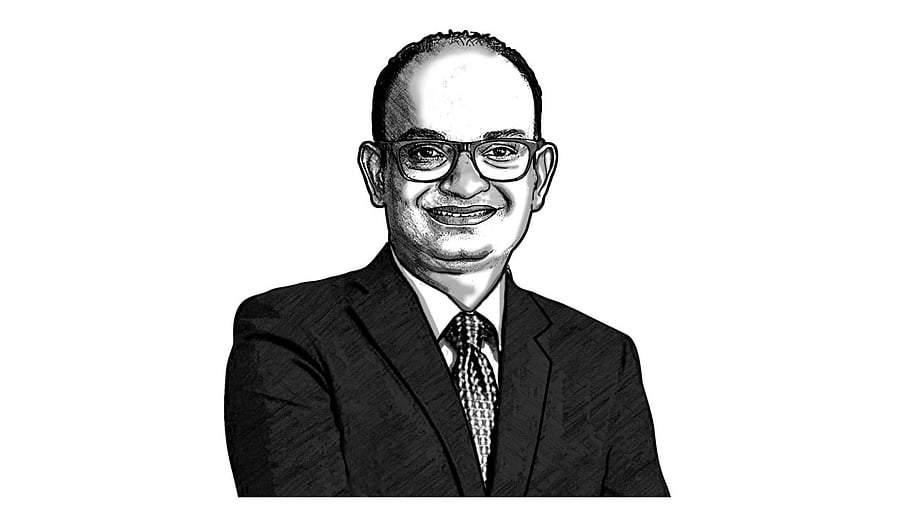
Gopichand Katragadda The former CTO of Tata Group and founder of AI company Myelin Foundry is driven to peel off known facts to discover unknown layers @Gkatragadda
Every Independence Day is an invitation to reflect on both national and personal freedom to choose how we live. In the early decades after 1947, freedom largely meant stability: a secure job, a clear career path, and a predictable workday. Today, in 2025, the definition is shifting. Freedom is increasingly about flexibility, the ability to shape work and life around outcomes, passions, and well-being.
This shift is being accelerated by Artificial Intelligence. AI adoption in workplaces has nearly doubled in the last six months, with 75 per cent of global knowledge workers now using generative AI. The boundaries between careers and gigs are dissolving, as are the rigid 9-to-5 patterns of the past.
By 2030, 70 per cent of the skills used in most of the jobs will have changed, and “output over hours” will be the norm. Organisations are moving towards measuring contribution by results rather than presence, enabling what some call flexible boundaries that are structured enough to deliver, and adaptable enough to protect energy, focus, and mental health.
In this environment, I believe we need to live 3D: learn from the past, live in the present, and prepare for the future. Living only for the now may be liberating, but it risks neglecting hard-earned lessons and necessary foresight. A balanced life draws wisdom from history, roots itself in the present, and invests in tomorrow’s readiness. This balance requires stamina across the three dimensions of health: mental, physical, and spiritual.
Advances in mental wellness technology, from AI-powered therapy assistants to real-time stress monitors, make it easier to stay attuned to our mental state. Physical health, supported by wearable devices and personalised nutrition, can now be tracked and improved with unprecedented precision. Spiritual health, once tied primarily to organised religion, is evolving toward individual practice: meditation, mindfulness, and purposeful living, which have seen an 180% increase in adoption globally. For me, spiritual health is less about ritual and more about living in alignment with values, empathy, and purpose. Bliss, hence, is not about finding a quiet Himalayan retreat; it is about cultivating silence in the mind, wherever you are. That inner quiet creates the psychological safety to think clearly, connect deeply, and act with intention. These are qualities that workplaces are now recognising as essential for trust and collaboration.
Similarly, in the context of a healthy nation, while we celebrate rising life expectancy, we must recognise it is only half the picture. Health span, the years lived in good health, with the energy to engage fully, is becoming the real measure. Advances in longevity science are making the prospect of a healthy hundred years realistic, but the focus must be on quality, not just quantity.
Over my career, I have witnessed a striking generational shift in leadership and workforce culture, from the Jack Welch style to the Sridhar Vembu style. The Welch era, which shaped much of my early professional life, prized performance intensity, competitive rankings, and relentless execution. It was a model built for scale and shareholder value, often demanding long hours and single-minded focus. In contrast, the Vembu style, exemplified by the Zoho founder, emphasises long-term sustainability, rural talent development, and work-life integration over constant acceleration. It reflects a workforce that values autonomy, purpose, and holistic well-being as much as financial success.
This shift mirrors the broader transition we see today: from tightly structured corporate hierarchies to flexible, human-centred systems that leverage technology, including AI, to enable both productivity and personal growth.
And amidst all the technology, metrics, and optimisation, we must remember that being human is more important than chasing superhuman feats. Empathy, humility, and connection are strategic assets. Research shows 77% of employees would work longer hours for a more empathetic employer, and 60% would even accept a pay cut.
To live free is not a life without responsibilities; it is a life where learning, living, and preparing flow into one another, much as India’s past, present, and future must be in constant dialogue.
As we celebrate another Independence Day, let us also claim our personal independence: to shape lives that are flexible yet focused, technologically enabled yet deeply human, and free not just from constraint, but from imbalance.